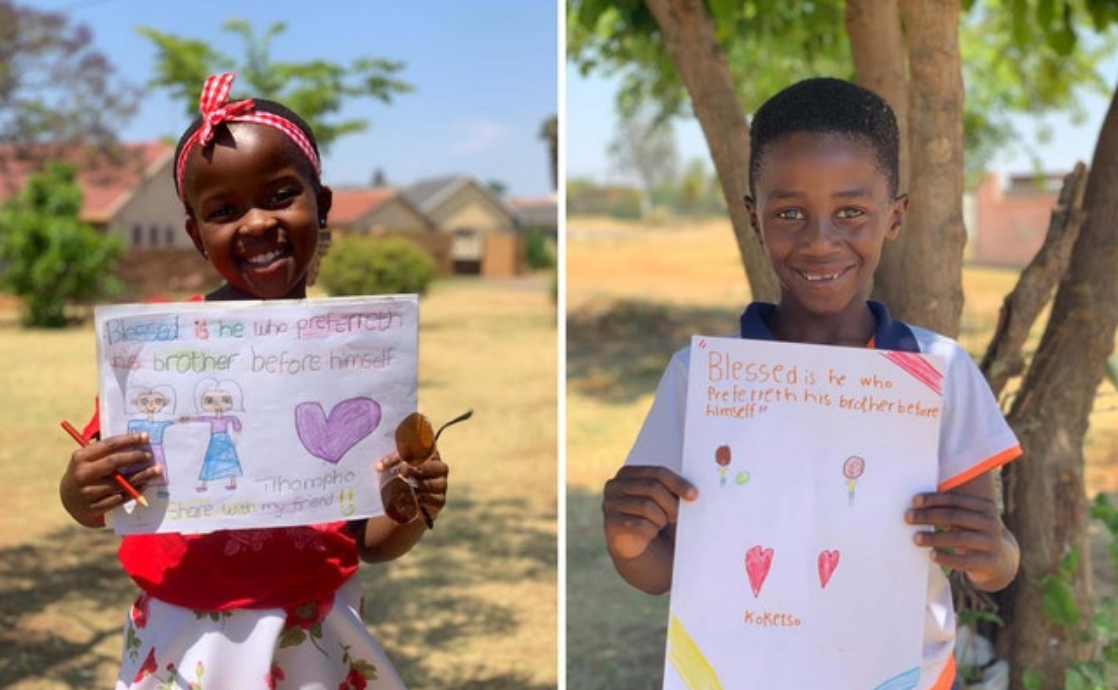Gender equality, a pivotal tenant of Bahá’í philosophy, plays an instrumental role in the social transformation of families and communities. In South Africa, where diverse cultures converge, the Bahá’í community emphasizes that genuine change towards gender equality starts at the familial level. This article elucidates the Bahá’í teachings on gender equality, particularly the lessons gleaned from South Africa, while also exploring various content facets readers can anticipate.
The Core Bahá’í Principles of Gender Equality
At the heart of Bahá’í teachings lies an unwavering belief in the inherent equality of men and women. The Bahá’í Faith asserts that gender equality is not merely a matter of social justice; it is a foundational element for the progress of civilization. This conviction is encompassed in the notion that the advancement of society hinges on the upliftment of both genders. The teachings encourage an egalitarian perspective, inspiring individuals to view men and women as equal partners in the development of the family unit and beyond.
Raising Awareness within Families
In the context of South Africa, the Bahá’í community actively engages in fostering awareness around gender equality within families. Workshops and discussions highlight the traditional roles often assigned to genders and challenge prevailing stereotypes that inhibit egalitarian relationships. Utilizing varied educational methodologies, such as interactive dialogues, the community encourages families to co-create environments that nurture mutual respect and understanding.
These educational instruments also encompass the promotion of shared responsibilities in household tasks and parenting. By instilling values of equality from an early age, children internalize these principles, which in turn reduces the perpetuation of gender biases as they mature. The objective is not only to transform individual families but to catalyze a broader societal shift, contributing to a culture of respect and collaboration.
Engaging Men in the Dialogue
A significant aspect of promoting gender equality is actively engaging men in its discourse. Historically, discussions around gender have predominantly involved women. However, South African Bahá’ís emphasize the necessity of including men, who play a critical role in redefining masculinity. Men participate in workshops designed to cultivate empathy and understanding regarding the challenges women face, thereby fostering a shared responsibility for gender equality.
Thus, the Bahá’í community facilitates dialogues that encourage men to express their perspectives while also inviting them to reassess cultural norms that may contribute to gender inequality. By reorienting conversations to foster club-like discourses among both genders, the Bahá’í approach becomes a model for harmonious coexistence, emphasizing empathy and shared learning.
Voices of Women: Empowering Female Leadership
The empowerment of women is another focal point within Bahá’í teachings. In South Africa, various initiatives underscore the importance of amplifying women’s voices in decision-making processes. This empowerment manifests through leadership training programs that equip women with the skills and confidence to take on leadership roles both within the family and the broader community. By bolstering female agency, the Bahá’í approach paves the way for a balanced distribution of power, ensuring that women’s insights and contributions are valued.
Moreover, these initiatives operate within the context of this empowerment being a collective pursuit. Women are encouraged to support other women, creating a supportive network that fosters growth and resource-sharing. In this way, Bahá’í teachings promote an ecosystem of interdependence, urging individuals to elevate one another to foster ultimate gender equality.
Cultural Sensitivity and Local Adaptations
South Africa’s rich tapestry of cultures necessitates that gender equality initiatives are culturally sensitive and adaptable. The Bahá’í teachings underscore the importance of understanding local contexts to implement effective educational programs. By acknowledging the unique sociocultural dynamics present within different communities, Bahá’ís in South Africa tailor their approaches to resonate with local values while instilling universal principles of equality.
This cultural sensitivity extends to respecting and integrating local traditions, many of which may possess inherent gender biases. By fostering dialogue around these traditions, Bahá’ís aim to amplify those aspects that promote equality while critically assessing cultural practices that subjugate one gender over another. This nuanced approach highlights the beauty of cultural diversity while advocating for a fundamental respect for human dignity.
Community Cohesion and Collaboration
Promoting gender equality is not solely the responsibility of the individual family but also necessitates community-wide collaboration. In South Africa, Bahá’í communities are at the forefront of fostering collective initiatives aimed at discarding prejudices and reinforcing a unified stance on gender equality. These collaborative efforts manifest in local partnerships with schools, businesses, and non-profit organizations aimed at fortifying gender equity within and beyond the familial context.
Through community service and various outreach programs, Bahá’ís foster a culture of inclusivity, creating platforms where diverse voices converge to champion gender equality. These communal efforts not only inspire social change but also create support systems that allow marginalized voices to be heard, further reinforcing the Bahá’í belief in collective responsibility.
Conclusion: A Blueprint for Change
The Bahá’í teachings emphasize that the pathway to gender equality indeed begins within the family. Through education, dialogue, empowerment, and community collaboration, the teachings expound a holistic approach to dismantling entrenched patriarchal norms. The lessons learned and implemented in South Africa present a detailed blueprint for fostering gender equality, not merely as a goal to achieve but as an ongoing practice to uphold. By reinforcing these principles, the Bahá’í community contributes to the broader endeavor toward a just and equitable society, setting an example for myriad cultures worldwide.
